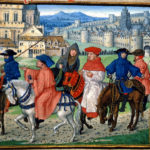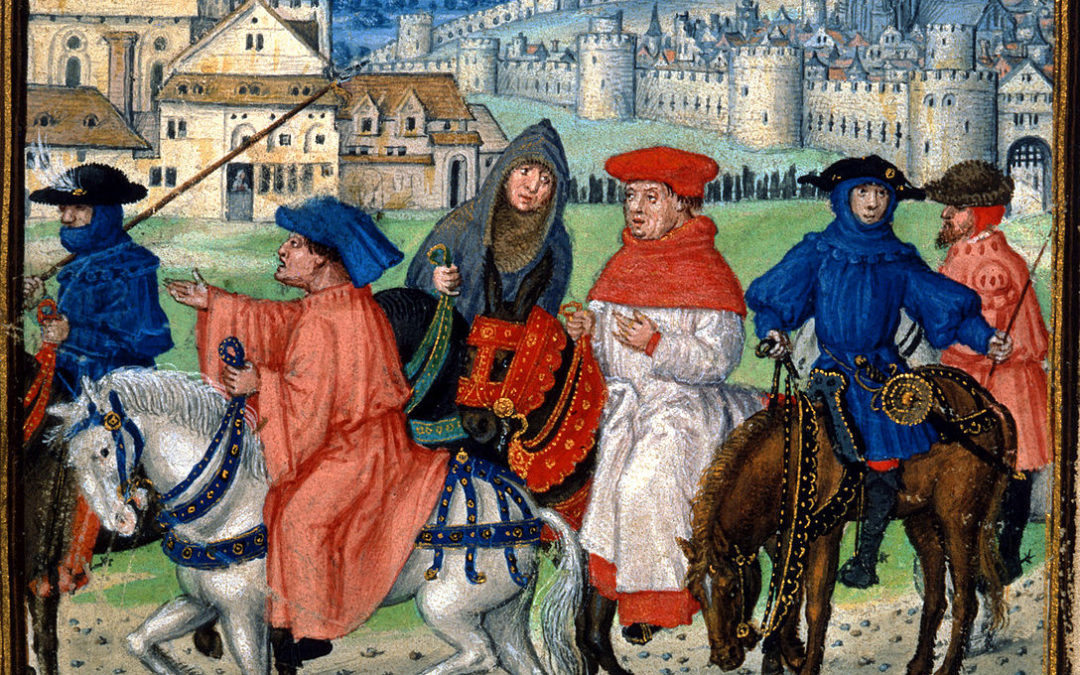 “Piers the plowman is nought in Lolleres ne in lond-leperes hermytes.” In modern English the statement becomes “Piers the plowman is not a Lollard nor a wandering hermit.”
“Piers the plowman is nought in Lolleres ne in lond-leperes hermytes.” In modern English the statement becomes “Piers the plowman is not a Lollard nor a wandering hermit.”
In the 21st century we have a very romantic idea of wanderers. “I love to go a-wandering . . .” are the opening words of a famous folksong. Such was not the case in Medieval England. Lollards (according to Mirriam-Webster a traveling lay preacher a sect established by Wycliffe) and hermits often leapt (wandered) the land from place to place, bringing with them blessings or curses according to their personalities. However, as one researcher states, communities “were hostile to outsiders who could not do useful work and earn their keep.” Too often wanderers came with their own agendas, not with intentions to help the community. Oddly enough in the history of the western hemisphere it is the wanderers who established communities. Even many native american peoples were nomads. Thus, hostility to wanderers has not been the case throughout history though it was common in the Middle Ages.


Recent Comments